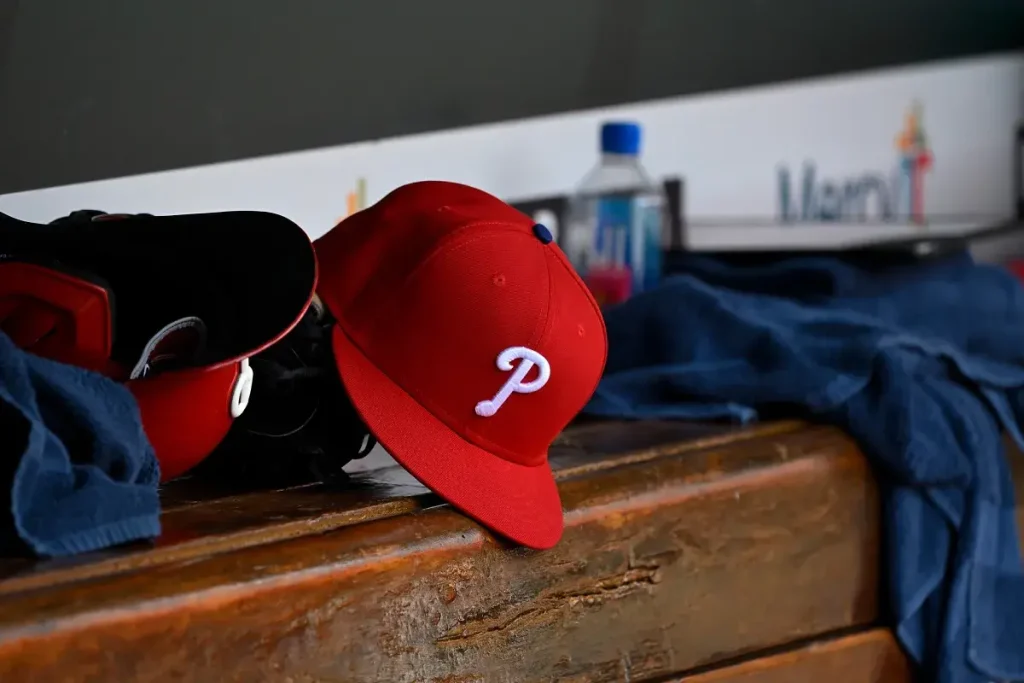Phillies Face Critical Roster Decisions After Playoff Disappointment
Despite boasting baseball’s best regular-season record at 96-66, the Philadelphia Phillies find themselves in a period of reflection and recalibration after being unceremoniously swept by the Los Angeles Dodgers in the National League Championship Series. The abrupt postseason exit has accelerated the organization’s offseason planning, with several key roster decisions looming on the horizon. While securing the futures of cornerstone players Kyle Schwarber and J.T. Realmuto appears to be the front office’s priority, another valuable veteran may be headed elsewhere as the team reshapes its roster for another championship push.
Among the most intriguing personnel decisions facing the Phillies involves outfielder Harrison Bader, who made a significant impact after joining the team at the trade deadline. The nine-year MLB veteran is reportedly expected to test free agency rather than exercise his $10 million mutual option with Philadelphia. This potential departure comes despite Bader’s remarkable performance during his short tenure with the Phillies, where he elevated his game to new heights. After arriving in Philadelphia, the center fielder posted an impressive .305 batting average with a robust .824 OPS across 50 games, adding five home runs and 16 RBIs to the Phillies’ potent lineup. This production represented a significant improvement over his career numbers, as Bader entered the season as a .242 lifetime hitter with a .698 OPS before his breakout campaign.
Bader’s situation perfectly illustrates the complex calculus of modern baseball roster construction. On one hand, his defensive prowess and newfound offensive consistency made him an integral part of Philadelphia’s success down the stretch. His exceptional play after the midseason trade demonstrated his ability to perform under pressure in a passionate baseball market. However, several factors complicate his return to the Phillies. At 31 years old, Bader finds himself “on the wrong side of 30” in baseball evaluation terms, and his injury history presents additional risk factors. This reality was underscored when a hamstring injury suffered in Game 1 of the NLDS prevented him from starting the final three games of Philadelphia’s truncated playoff run, serving as a reminder of the durability concerns that have periodically interrupted his career.
Despite these considerations, Bader’s position as an accomplished center fielder in a market with “so few impact center fielders” significantly strengthens his negotiating leverage. According to Bleacher Report’s Tim Kelly, Bader “should have no problem getting two guaranteed years on the open market,” with a possibility of securing a three-year commitment from teams desperate for outfield stability. This market reality explains why Bader is expected to decline his portion of the mutual option with Philadelphia – a decision that MLB.com’s Todd Zolecki also anticipates. The scarcity of quality center field options across baseball could drive Bader’s price beyond what the Phillies are comfortable paying, especially considering their existing payroll commitments and the need to address other roster weaknesses exposed during their disappointing playoff exit.
The Phillies’ decision regarding Bader encapsulates the broader challenges facing the organization as they attempt to transform regular-season excellence into postseason success. While Philadelphia clearly values Bader’s contributions, they must balance their appreciation for his performance against the financial flexibility needed to address multiple roster needs. The team’s decision-makers must determine whether Bader’s late-season surge represents a sustainable improvement or an outlier performance unlikely to be replicated over the course of a multi-year contract. This evaluation occurs against the backdrop of baseball’s increasingly sophisticated player valuation systems, which often view athletic outfielders entering their thirties with a healthy dose of skepticism regarding future performance.
As the offseason unfolds, the Phillies’ handling of Bader will provide telling insights into the organization’s overall strategy and vision. Will they prioritize continuity by attempting to retain a player who meshed well with their roster, or will they redirect resources toward other areas of need? The answer may depend on how aggressively other teams pursue Bader and whether the Phillies believe they have internal options capable of replicating his production. Regardless of the outcome, Philadelphia’s approach to this and other roster decisions will significantly influence their chances of converting their impressive regular-season success into the postseason glory that narrowly eluded them this year. Meanwhile, baseball insiders are already connecting dots elsewhere in the free agent market, with reports suggesting the Boston Red Sox are well-positioned to pursue Houston Astros star third baseman Alex Bregman – another reminder of how quickly the offseason chessboard begins to take shape.


